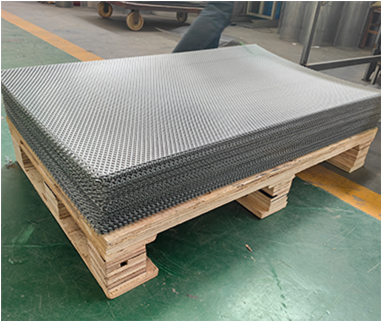 Tel:
+8615930870079
Tel:
+8615930870079
Nov . 29, 2024 20:07 Back to list
Optimizing Dust Cartridge Performance for Enhanced Air Quality and Efficiency
Understanding Dust Cartridges A Key Component in Dust Collection Systems
In industrial environments, controlling airborne dust and particulate matter is crucial for the health of workers and the integrity of equipment. One of the most effective methods for managing dust is through the use of dust collection systems, which rely on specialized components known as dust cartridges. This article will explore the significance of dust cartridges in these systems, their functioning, benefits, and maintenance requirements.
What is a Dust Cartridge?
A dust cartridge is a pivotal part of a dust collection system. It is essentially a filter that captures dust and other particulates from the air before it is released back into the environment. Dust cartridges are typically made from advanced materials designed to handle various types of dust, such as wood dust, metal shavings, or fine powder particles from manufacturing processes. The cartridges vary in size and filtration technology, with options that cater to different industrial needs.
How Dust Cartridges Work
The operation of a dust cartridge involves a filtration process that separates dust particles from the air. When air laden with dust enters the dust collection system, it passes through the cartridge filter. The filter's design enables it to trap larger particles while letting the clean air pass through. As a crucial part of the filtration process, dust cartridges can utilize various technologies, including
1. Mechanical Filtration This is the most common method where dust particles are physically captured by the filter material. The design of the cartridge often includes pleats to increase the surface area, allowing more particles to be captured.
2. Electrostatic Precipitation Some advanced systems use electrostatic charges to attract and trap dust particles, making them effective even against smaller particulates.
3. HEPA Filters For environments requiring the highest level of cleanliness, HEPA (High-Efficiency Particulate Air) filters are employed in dust cartridges to capture 99.97% of particles as small as 0.3 microns.
Benefits of Using Dust Cartridges
The incorporation of dust cartridges in industrial operations presents numerous benefits
dust cartridge

1. Improved Air Quality By effectively capturing dust and particulates, dust cartridges help maintain a healthier breathing environment for workers, reducing the risk of respiratory issues.
2. Enhanced Equipment Lifespan Dust accumulation can lead to equipment malfunction and wear. By utilizing effective dust cartridges, businesses can protect their machinery and postpone costly repairs or replacements.
3. Regulatory Compliance Many industries are subject to strict environmental regulations regarding air quality. Employing dust cartridges helps companies adhere to these regulations and avoid potential fines or legal issues.
4. Efficiency in Dust Collection Unlike traditional methods of dust control, dust cartridges are designed to operate efficiently, promoting better airflow while effectively capturing more dust.
Maintenance of Dust Cartridges
While dust cartridges are designed for durability, regular maintenance is essential to ensure their optimal performance. Here are some key aspects of maintenance
1. Regular Inspection Periodically checking the cartridges for signs of wear, damage, or clogging is crucial. A visual inspection can often reveal whether cleaning or replacement is necessary.
2. Cleaning In certain cases, cartridges can be cleaned using compressed air to remove accumulated dust. This process should be done with caution to avoid damaging the filter.
3. Replacement Eventually, after continuous use, dust cartridges will need to be replaced. The frequency of replacement depends on factors like particle load, cartridge quality, and operating conditions. It’s important to follow manufacturer recommendations regarding replacement schedules.
Conclusion
Dust cartridges are an integral part of dust collection systems in industrial settings, playing a vital role in maintaining air quality and protecting workers' health. They offer a range of benefits, from enhancing equipment longevity to ensuring compliance with environmental regulations. However, proper maintenance is key to maximizing their effectiveness and ensuring the safety and productivity of the workplace. As industries continue to evolve, the role of dust cartridges in air quality management will undoubtedly remain critical, paving the way for safer and healthier working environments.
-
Types and Applications of Air Filtration CartridgesNewsJul.28,2025
-
The Role of Gas Turbine FiltersNewsJul.28,2025
-
Mastering Air Filter Cartridge UseNewsJul.28,2025
-
Advanced Turbine Filters for Modern Gas TurbinesNewsJul.28,2025
-
Cellulose Air Filter Cartridge Advantages in Dust FiltrationNewsJul.28,2025
-
Cellulose Filters for Air Particle ReductionNewsJul.28,2025

 Email:
Email:





